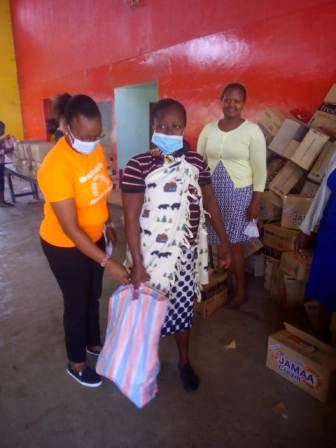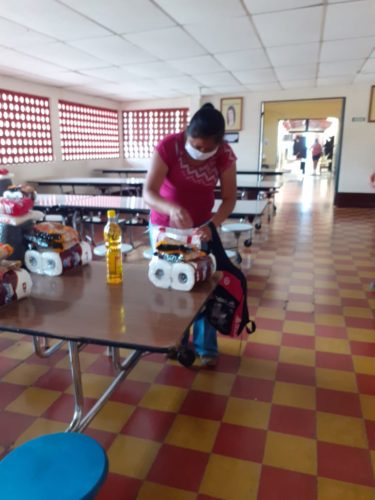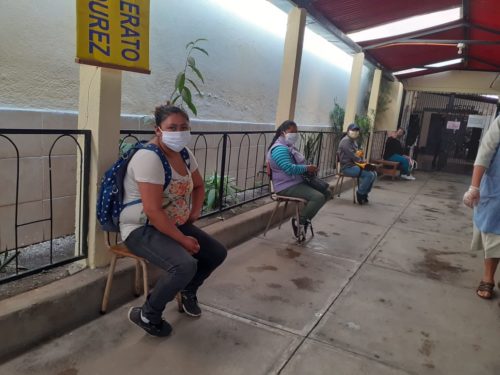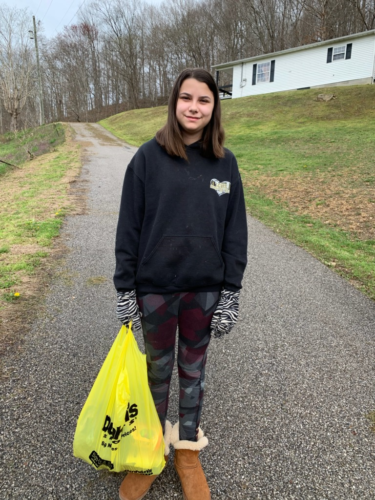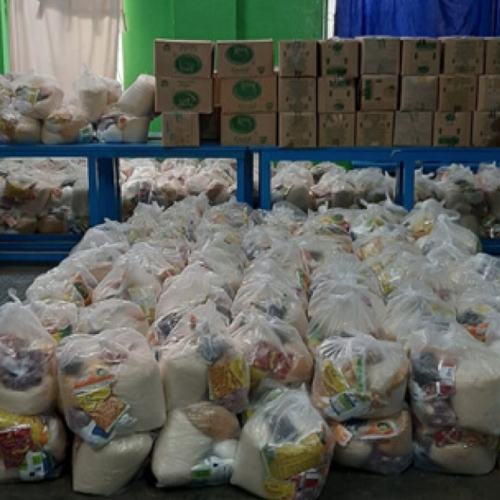As we continue to provide support to our affiliated projects around the world amidst COVID-19, we are hearing from our volunteer coordinators about how valuable our support is at this time. Today we hear from Sandy at Bevins Elementary School in Kentucky about how donations from our donors are helping children in her community.
“Removing barriers is what Children Incorporated does best.”
“Dear Children Incorporated,
The mission of the Family Resources and Youth Services Center (FRYSC) is to remove any barriers that prevent the education and well-being of our students. Children Incorporated, along with its many sponsors, has made this job so much easier. Removing barriers is what Children Incorporated does best. With the outbreak of the COVID-19 virus it has been a very different semester, but with Children Incorporated’s help, we have successfully supplied resources to meet our families’ needs.
Grandparents as parents
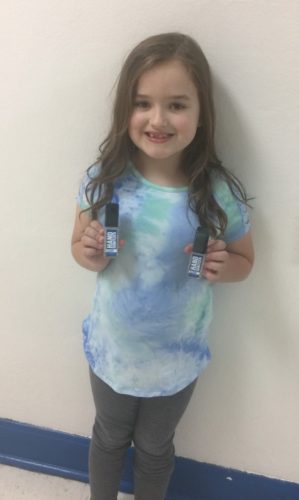
Hand sanitizer and hygiene kits are a big help in keeping children safe and healthy.
This year, with the help of Children Incorporated Hope In Action funds, the Pike County Title I program, and a variety of different organizations, we have been able to continue to facilitate a Grandparents as Parents support group. The grandparent workshops have continued to increase in participation this year. The program has been such a wonderful success! The grandparents were given much needed educational resources, counseling, and a lot of extra support in different areas. They were served refreshments and received hygiene items, basic need supplies, and door prizes. They feel they are so much more prepared to help educate their grandchildren thanks to this wonderful program! I can’t express enough gratitude for the help. We hope to continue to provide this wonderful program for our grandparents who have been placed in the role of parenting their grandchildren.
Thanks again to the Children Incorporated Hope In Action program and help from other community partners, we were able to facilitate our first Annual Community Baby Shower, hosted by the Belfry area FRYSC. There were different agencies on hand to give new expecting parents resources and information to help better prepare them for their new baby. Food was served, and door prizes and baby supplies were given to the expecting parents in attendance. This was a wonderful resource for the families, and we had good attendance.
Readifest and Back to School bash
Another wonderful program that wouldn’t be possible without Children Incorporated is our annual Readifest also known as our Back to School Bash. Children Incorporated has always helped with this project. Students every year are given school supplies, hygiene products, and have access to a host of different organizations that will help them to be better prepared for the new upcoming school year. Many students would not have the much-needed resources to exceed in school without this program.
This year, due to the COVID-19 virus, we were given additional Hope In Action funds to help purchase hygiene products and items to help protect our families and students.
This year, we were so pleased to once again receive Hope In Action Funds to facilitate a wonderful reading program during Read Across America Week. Well-known author Leigh Anne Florence and her dogs, Chloe and Woody, were able to visit our school. Many families have little or no resources to provide adequate reading materials for the students. Parents sometimes feel discouraged by the lack of self-confidence and motivational skills needed to help their children succeed. Through this program, parents and children were brought together to read and share an evening of fun-filled opportunities to become more engaged in their children’s academic needs. Writing classes were provided to third through fifth graders. These classes will play an important role in encouraging and preparing them for state assessment testing and real-world connections.
This year, due to the COVID-19 virus, we were given additional Hope In Action funds to help purchase hygiene products and items to help protect our families and students. With the funds, Bevins Elementary School FRYSC has purchased hand sanitizer and COVID-19 safety prevention kits. The kits include safety instruction for proper prevention techniques and face masks as well.
Throughout the year, many of our students would not have many of the resources that they need to be successful in school if it wasn’t for Children Incorporated. Thanks to your sponsors, these students can excel in their education along with their classmates.
It has been a joy to work another school year with Children Incorporated with your amazing staff and wonderful supporters.
Thank you all and I look forward to working with you again this next school year!
Sandy”
***
HOW DO I SPONSOR A CHILD IN KENTUCKY?
You can sponsor a child in Kentucky in one of two ways: call our office at 1-800-538-5381 and speak with one of our staff members, or email us at sponsorship@children-inc.org.


